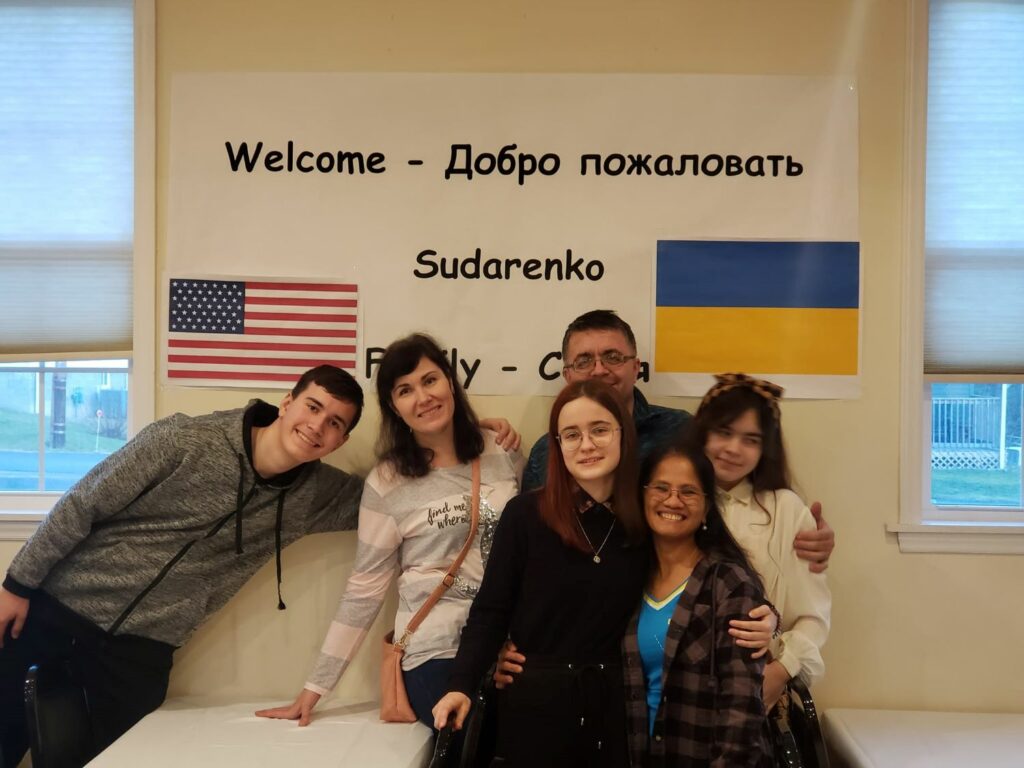Since it began, the war in the Ukraine has been a source of great concern for people around the world. It seems that no part of our world has gone untouched by this conflict.
Whether we look to the Doomsday Clock, global economics, or social media there are obvious reminders in our daily life that a major geopolitical event, historic in scope, is happening now. Despite these factors, we in America are in danger of forgetting that for those in the Ukraine, or those who have fled from it, this war is not a distant reality, but a real and present threat. The United Nations has identified that nearly six million Ukrainians have been displaced within the country, and eight million have sought refugee status in Europe alone.
For Rev. Sarita Ladios Robinson, associate pastor of Cornerstone Ministries, a 5-point UMC charge, in Fairmont, W.Va., the news of the war hit close to home.
“I was brokenhearted,” she said. “ … Donetsk, where they attacked, has become a stronghold of Russia, and I have many friends who cannot get out now.”
Robinson had lived and worked for nine years as a missionary in the Ukraine.
“The Ukraine became a second home for me, and my church was a second family,” she said.
The strict Russian wartime government — combined with sporadic electricity, limited clean water, and scarcity of food — have proved to be a fatal combination. Of all the dangers, however, “In winter, the cold, and not food, is the enemy of the people,” she said. While some have escaped the region, many remain to be with their husbands or sons, who are even more restricted in their movements.
Rev. Robinson has worked to bring families out of Donetsk and into nations that will accept them as refugees. In many nations, refugee status can only be granted when a sponsor has signed on in support of the refugee or refugee family seeking shelter. These standards vary from nation to nation, but in the United States these conditions are set by Uniting for Ukraine, an initiative of the United States Citizenship and Immigration Services (USCIS.)
After vetting, a sponsor is allowed to welcome an approved refugee family for a parole period of two years. During this time the members of the family attend school, English as a Second Language classes, and seek employment wherever they are able.
One such family was given a home here, in West Virginia. After consulting with MonValley District Superintendent Rev. Amy Shanholtzer, the search was on for a church with a vacant parsonage that could provide a place for them to stay. Quiet Dell United Methodist Church in Clarksburg, W.Va., answered that call.
The answer came to Rev. Robinson on Christmas Eve — a text from Pastor Jennifer Sayers of the Quiet Dell charge confirming that the family was welcomed into their parsonage. Acting as an organizational sponsor, the church was providing a new sense of security to the displaced family.
“It is hard to find a house for a big family [of six,] it was God’s blessing and intention to find them that house,” Robinson said.
Asked what the greatest need for refugees is, Pastor Robinson pointed to sponsorship. “Talking to your church and seeing if you can take in a family, having those discussions is important. I think a lot of people are hesitant because they think sponsorship is taking sole responsibility for a family, but there are programs in place and benefits to help.”
These programs include the English as a Second Language courses mentioned above, but also eligibility for programs like the Supplemental Nutrition Assistance Program (SNAP.) In fact, the thing that stood out through the process of bringing this family in was just how much a community can come together to see great things be done in God’s name.
“I was so blessed to see the way churches came together to show love and support for this family,” Robinson said. “Different denominations, different churches, coming together to outpour love and support. When we had a welcome dinner, we had at least 10 congregations come out to show their support. When there is a need, they step up.”
The image that stood out to Rev. Robinson throughout this project was Paul’s vision of the Church as one body from 1 Corinthians 13, especially verse 26, “If one member suffers, all suffer together with it; if one member is honored, all rejoice together with it.” This is connectionalism in action. A pastor, with the support of her senior pastor and charge, reaches out to a district superintendent, and they find a church in another district to step up and provide housing. This is a unity that transcends boundaries we might make for ourselves, beyond denomination and geography, beyond nations and warfare.
Pastor Sarita Ladios Robinson plans to welcome more refugees into West Virginia, and hopes that other churches will join in this initiative. At the time of writing, Suncrest United Methodist in Morgantown, W.Va., had begun the process of welcoming a family as well.
Those who are interested in this ongoing ministry may contact Rev. Robinson or Rev. Amy Shanholtzer for more information. For additional resources on helping refugees here in West Virginia, consider contacting the West Virginia Interfaith Refugee Ministry.
John Langenstein is a Licensed Local Pastor at North View United Methodist Church, Clarksburg, and a member of the Conference Communication Team.
